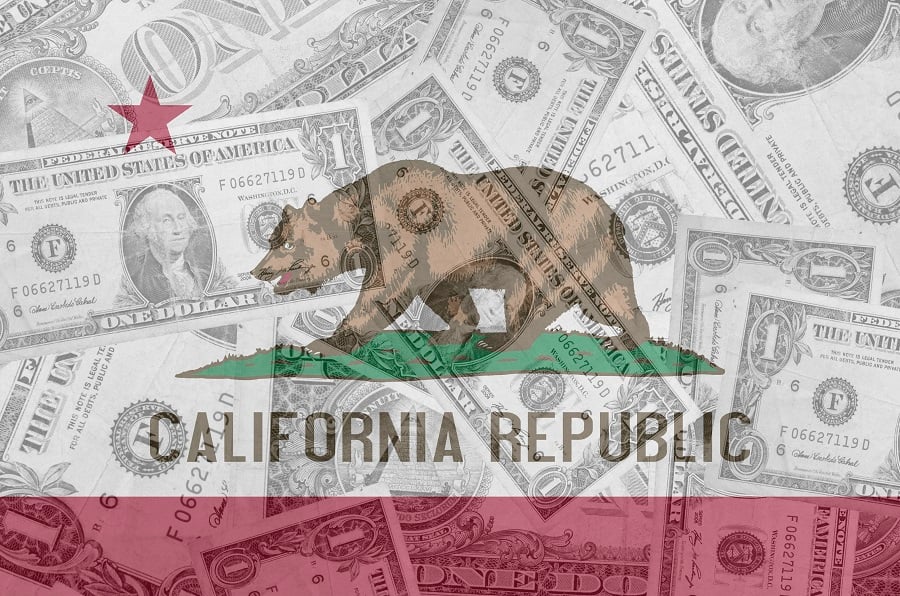California lawmakers are poised to vote any day on a bill that would greatly expand access to workplace retirement plans among small businesses, a measure that has drawn both praise for helping address a perceived savings shortfall and ire from groups who feel the state is taking the wrong approach.
California's Secure Choice program is an automatic-enrollment program required for employers that have at least five employees and don't currently offer a workplace retirement plan.
The bill to enact the Secure Choice program, SB 1234, which has been four years in the making, is expected to become law as soon as next week and would cover an estimated
6.8 million Californians.
The bill is on the floor of the California State Assembly and a vote could come “any day,” according to Marc Lifsher, a spokesman for the California State Treasurer.
A spokesman for Sen. Kevin de León, the bill's sponsor and a Democrat, expects the vote will occur Wednesday or Thursday and the bill will arrive at the governor's desk by Monday. The governor would then have a month to sign or veto the legislation.
“I'd be surprised if it doesn't become law,” said Judy Miller, director of retirement policy at the American Retirement Association.
The program comes at a time of active debate in the U.S. retirement industry about how to close the “coverage gap” for the swath of employees not currently eligible for a workplace retirement plan.
Currently, only 58% of American workers have access to a plan through their employer, according to a
report from The Pew Charitable Trusts. Offering a plan through the workplace is important because of the effectiveness of deducting regular contributions directly from a paycheck, proponents argue.
Absent any
meaningful moves at the federal level to alleviate gaps, states have stepped in. Illinois, Maryland, Connecticut and Oregon have passed legislation to set up automatic-enrollment IRA programs similar to California's, while Washington and New Jersey are establishing marketplaces where employers can shop for plans offered by various vendors.
In all, lawmakers in more than half the states have either moved to create or study such retirement savings programs. The Department of Labor is trying to ease their decision-making process by
proposing a rule that would allow state programs not to be subject to the Employee Retirement Income Security Act of 1974, as 401(k) plans are, thereby minimizing liability.
Ms. Miller said the American Retirement Association is supportive of efforts to expand coverage and create workplace savings plans.
Given the requirement that businesses offer a plan to employees (either the state-run plan or a private-sector one) and the automatic enrollment feature in the state plan, Ms. Miller feels programs such as California's will be effective at boosting coverage.
Employees would be auto-enrolled to contribute 3% of their salary, but can opt out.
She also believes such plans will “expand the marketplace,” ultimately benefiting retirement plan advisers and service providers as small businesses that don't choose the state-plan route opt to offer a 401(k) plan instead.
However others, such as Scott Hanson, co-founder and co-chief executive of Hanson McClain Advisors in Sacramento, Calif., are staunch opponents of the legislation.
“I think it's horrible,” Mr. Hanson said. “I don't know how this is going to benefit anybody.”
Mr. Hanson takes issue with what he sees as overbearing bureaucracy. He questions why the state didn't, for example, mandate that employers offer automatic payroll deduction into a private-sector IRA rather than a new type of plan, thereby making the mechanism much simpler.
“It's yet another government program,” Mr. Hanson said. “Why don't they take over Uber, too, and provide all my needs? Perhaps they should be in the food distribution business.”
Trade organizations such as the Investment Company Institute, which represents mutual-fund firms, and the Financial Services Institute, which represents independent broker-dealers, are also
critical of Secure Choice.
ICI primarily takes issue with the program's pre-emption from ERISA, according to Brian Reid, the group's chief economist. He said this will lead to a “patchwork” of plans, with some (such as 401(k) plans in the state) covered by ERISA and others not.
“I think this places these investors in a great deal of risk as a result of not having these protections in place,” Mr. Reid said.
Grant Boyken, California's deputy treasurer, said that, as with government-sponsored 457 plans — a type of defined-contribution plan not covered by ERISA — Secure Choice will be overseen by a public board whose members, vendors and consultants will have a fiduciary duty to the participants.
Mr. Reid advocates instead for open multiple-employer plans (open MEPS), which would allow small employers to share a common defined-contribution plan set up by, for example, the local Chamber of Commerce. That way, small employers can take advantage of pricing benefits possible by pooling assets and leave much fiduciary oversight to an outside entity. Federal rules currently don't allow for open MEPs, however.
Robert Lewis Jr., FSI's vice president of legislative affairs, said New Jersey and Washington are taking the better approach with their marketplace-style scheme, given the voluntary nature of the programs at the employer level.
“If California wants to try to amend or modify their plan to look more like a marketplace program, we'd appreciate that a lot more,” Mr. Lewis said.
However, Ms. Miller doesn't expect the marketplace programs to “do much to expand coverage,” precisely because of the lack of employer mandate.
“There's no requirement that employers do anything,” she said. “The programs make it easier for the employer to find a provider, and maybe it'll turn out to make a little bit of a difference, but it's not all that hard to find a provider right now.”







